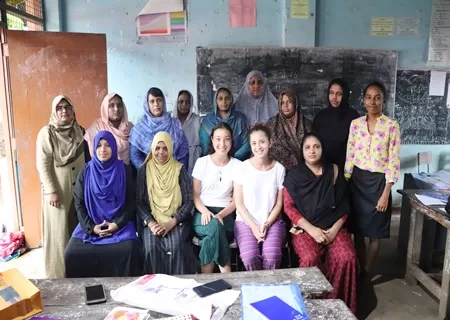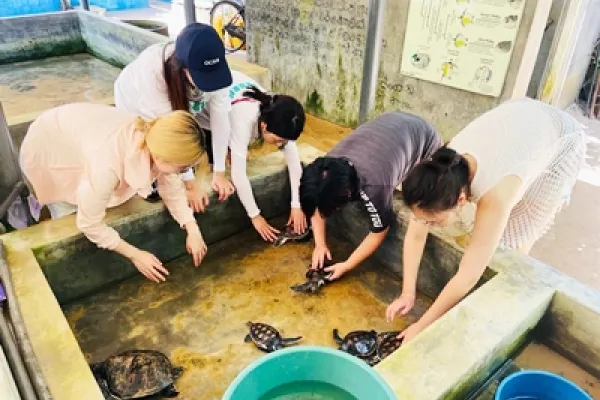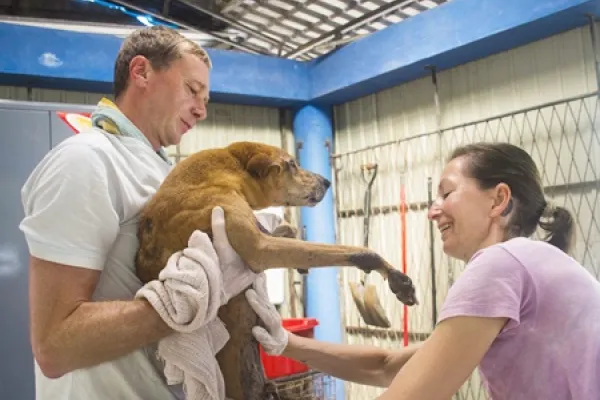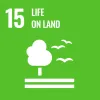Overview
This project's primary goal is to equip impoverished rural Sri Lankan women with much-needed English language and life skills so they can grow personally, boost their confidence and self-esteem, interact with their families and children more effectively at home, and become more employable in the future. For a variety of social and economic reasons, most of these women have never had the chance to acquire these skills and pursue a successful career; therefore, it is imperative that this service be made available to them to support their development and well-being.
Background of the Program
In this project, we typically work with rural Sri Lankan women who are some of the most vulnerable sections of the society. The situation of these women has been shaped heavily by its traditional culture, colonial history and post-independence policies.
It is no secret that gender stereotypes adversely impact women, particularly in rural communities of developing countries like Sri Lanka. Women here continue to be seen as “dependent wives” or “supplementary earners” at best. Traditional familial responsibilities of a woman, especially as a mother / wife / homemaker, constrain them in their choice of employment, as do her family’s and society’s attitudes towards certain types of employment.
Most women in Sri Lanka are literate in Sinhala and/or Tamil, the two main local languages in the country. This is because in the 1950s, primary, secondary, and tertiary education, including university education, was made free and converted from English medium to the local languages. This led to a rapid expansion of educational opportunities amongst females. Parents no longer had to choose whether to invest in the education of sons or daughters. Educational participation rates rose rapidly amongst women and gender differences declined sharply by the 1970s. Despite this, dropout rates were higher among females, especially in low-income neighborhoods, settlements, and villages.
In 1983, a massive civil war broke out in Sri Lanka, which lasted for 26 years ending in 2009. This led to substantial social dislocation and trauma. Social sector expenditure was cut back by the increasing financial cost of the war in the late 1980s and 1990s. As a result, there was a deterioration in the quality of health and education services which negatively impacted the quality of life for women and their families. Many women were pushed out of stable employment in the formal sector to marginal economic activities, and to unviable self-employment. Various studies have shown that for poor rural women, quality of life and employment conditions deteriorated the most during those three decades and pushed them into unemployment or low-skilled jobs. The tsunami of 2004 was also instrumental in bringing large scale damage to the region, which further deteriorated employment prospects and quality of life for women and their families.
Women’s empowerment can come in many forms and we have chosen to focus on providing English education at the grassroots level as a tool to equip these women with greater confidence and make them more employable (particularly in the growing international tourism sector where having a working knowledge of English is more or less mandatory for gaining decent employment), while further developing their basic life and language skills. Most women who participate in this project have had little to no experience or familiarity with the English language prior to joining the project. They come from lower-income families that have suffered the most during the turbulent times of the recent past. Many of them have had early marriages and have never been given an opportunity to pursue a viable career.
Volunteer Work Schedule
Volunteer Work Schedule
- Saturday : Arrival +House Tour + Initial Training session (as long as the participants come by afternoon or else its done on Sunday)
- Sunday : Neighborhood familiarization tour
- Mon to Fri : Volunteer work
- Breakfast : 06:30 am - 8:30 am
- Lunch : between 12:30 pm to 1:30 pm
- Lesson Planning :1-3 pm
- Women sessions : Mon to Thursday 3-5.30 pm
- Friday : Planning for Monday
- Dinner : 06:30 pm -7:45 pm
Note: The schedule may vary depending on the local circumstances and can be changed by the coordinators due to any unavoidable circumstances.
Volunteer Roles & Responsibilities
Volunteer Roles & Responsibilities
As a volunteer for the Women Empowerment Project, you will be involved in the following tasks :
Teaching English at a basic level to women in small to mid-sized groups in the afternoons
Prepare for each session focusing on the specific needs of the group
Help the staff for the lesson planning and also find out creative ways to teach
Focus more on communicative English (than reading & writing) so that their grammar gets polished
Employ various techniques, such as role play, in order to maximize the practical impact of this initiative
Teaching sessions can be held either in the mornings or afternoons, for about 2-3 hours each. Each session will be conducted in a close-knit, comfortable environment with small groups of 5-20 of rural women.The classes are scheduled 4 days a week and one specific day is dedicated for lesson planning where the volunteers plan the sessions and get the needed lesson materials prepared in advance. It is important to adapt to the ground circumstances and be flexible. The education coordinator will accompany the volunteers to the project site and guide the volunteers when delivering lessons and planning lessons.
Volunteers can also get help from our staff on planning for topics / lessons and creative ways to teach, but lesson planning and teaching are ultimately the responsibility of the volunteers themselves. Classes will focus more on spoken English (to maximize impact) and will also include basic grammar sessions. We employ various techniques, such as role play, in order to maximize the practical impact of this initiative.
Project Requirement
Project Requirement
Volunteers joining the Women Empowerment Program must be 18-60 years old at the time of joining the project. You need to have an open mind and a flexible attitude for working in a new and different environment. The volunteer should bring energy and enthusiasm to make a difference. Participants must be fit and healthy at the time of joining the program. Participants should have no criminal convictions and should provide a clean criminal background check report.Only Female volunteers are accepted in this program.
Schedule a Google Meet with a Program Advisor
Interested in our programs? We're here to provide expert guidance
- Get Detailed Info
- 20 min One -on-One meeting
- Get expert advise
- Application Guidance
Photo Gallery
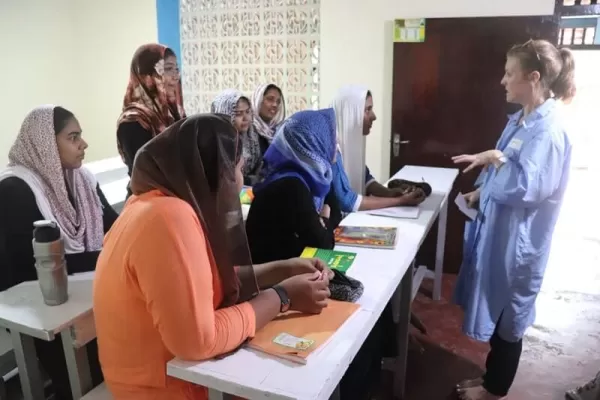
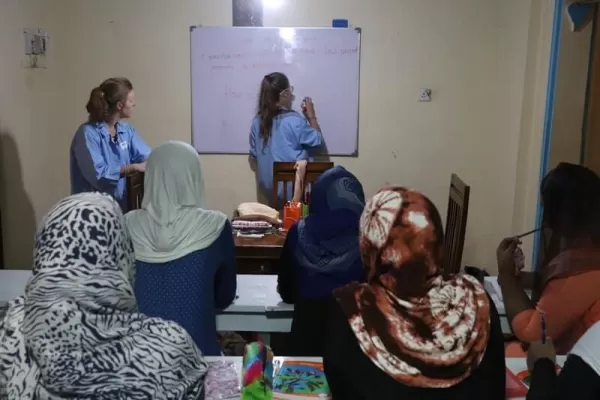
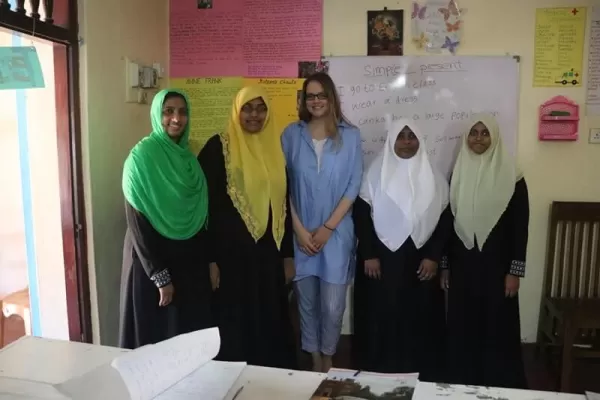
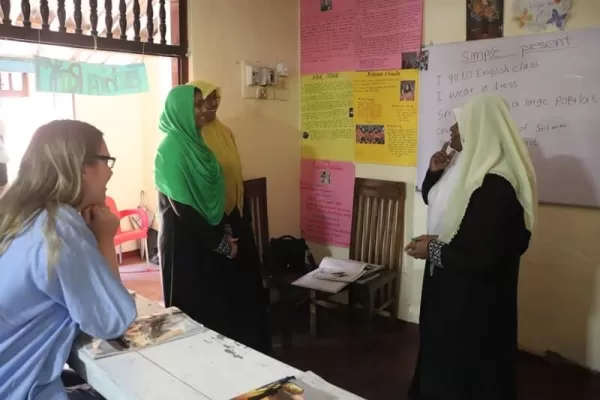
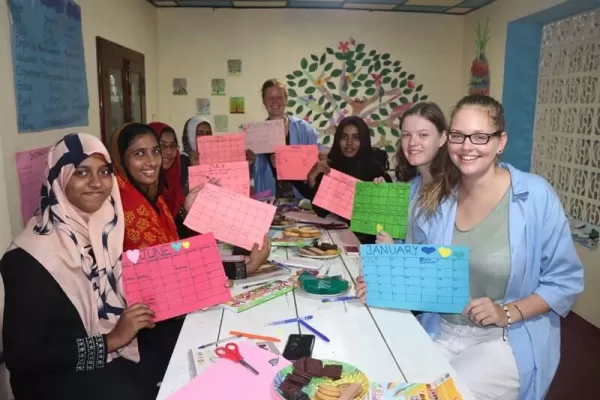
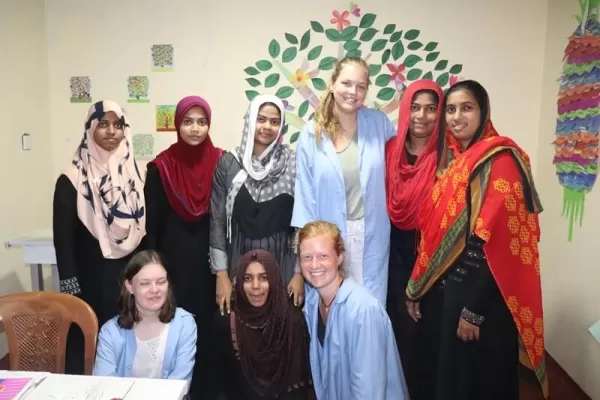
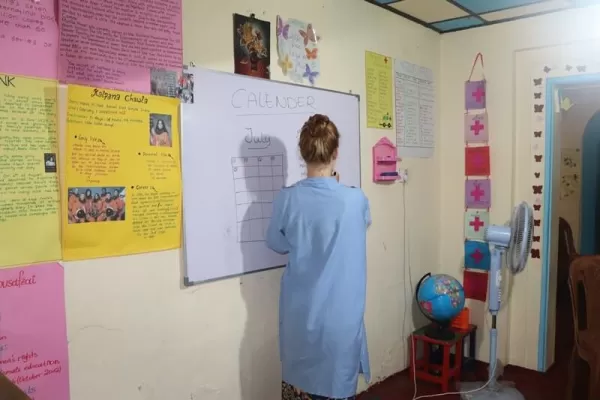

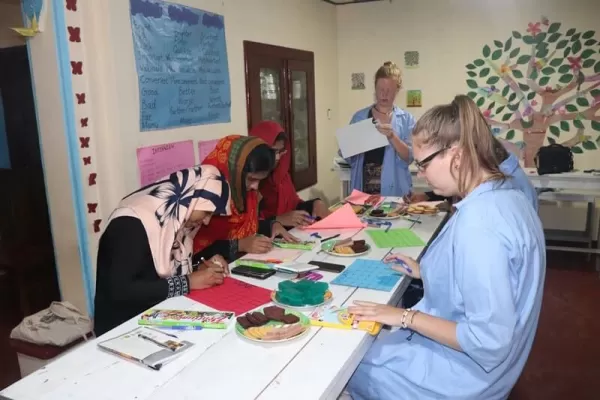
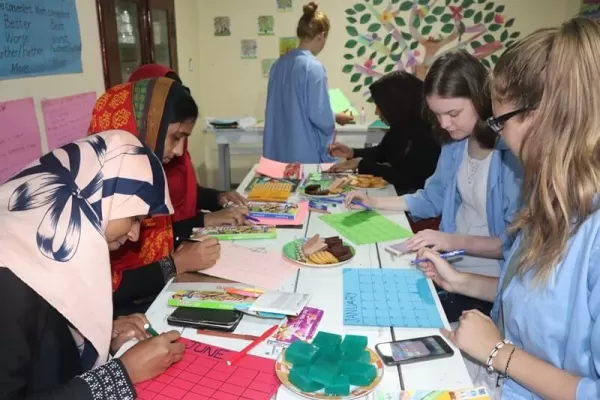
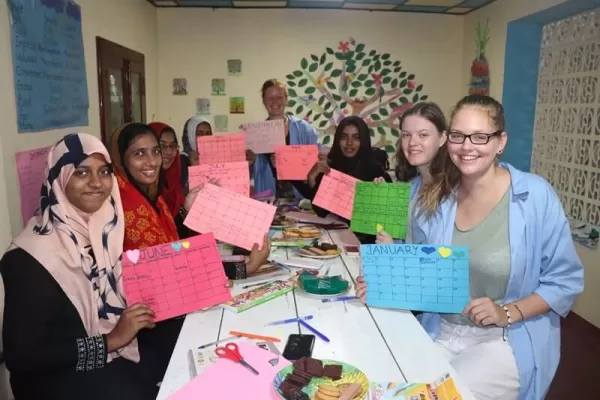
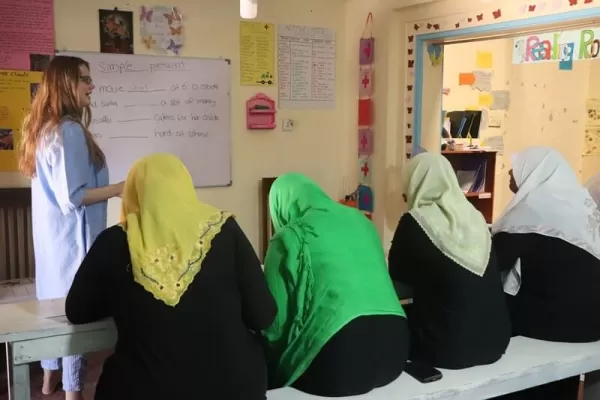
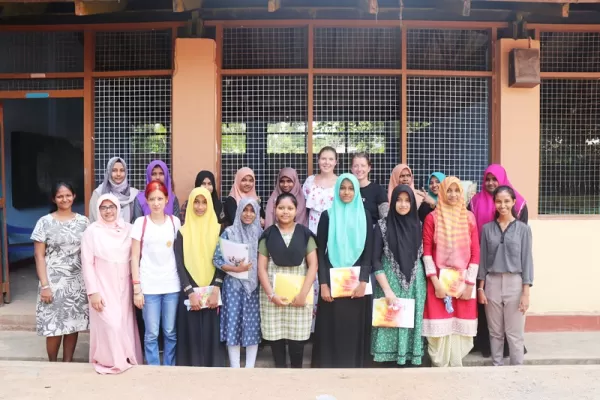
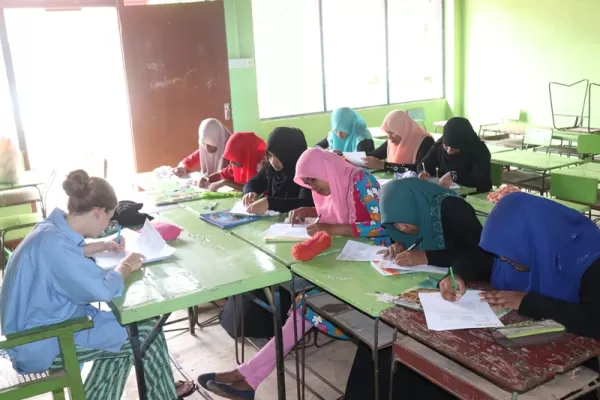
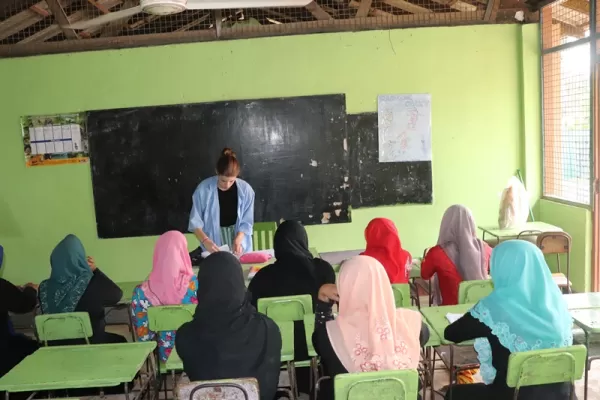
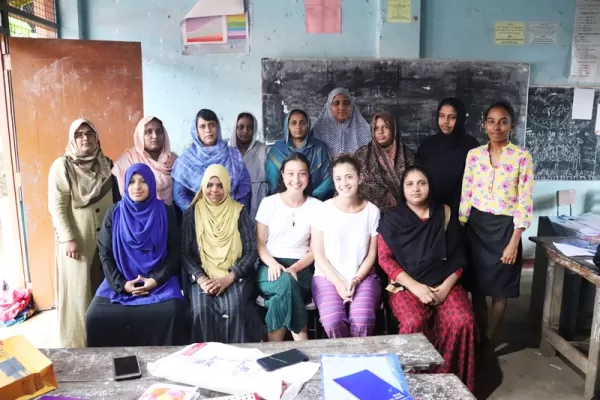
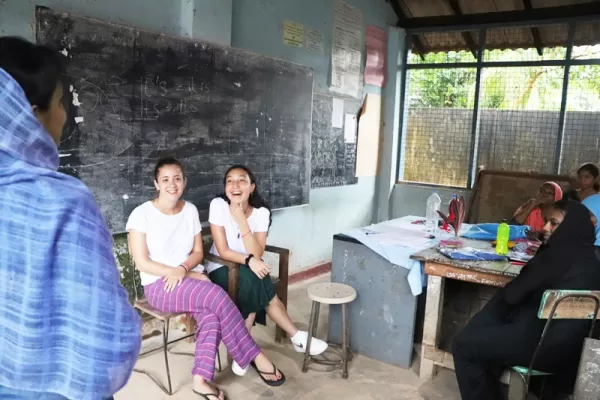
Living
Living

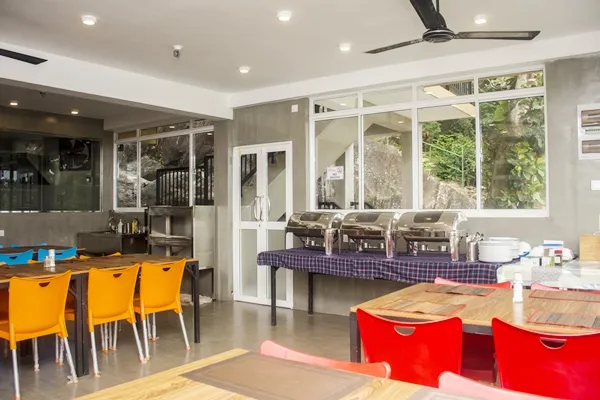
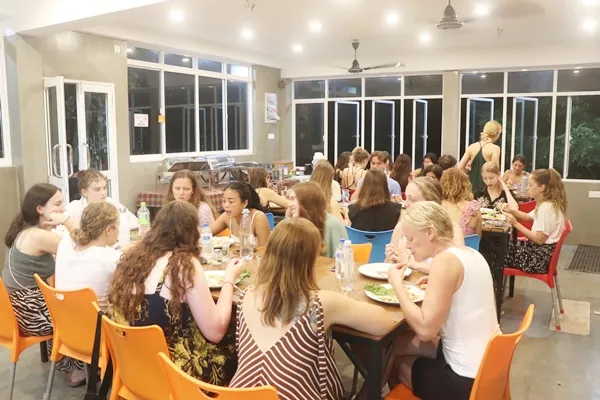
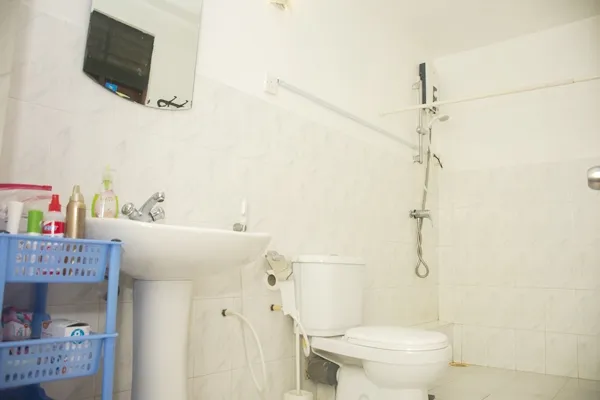
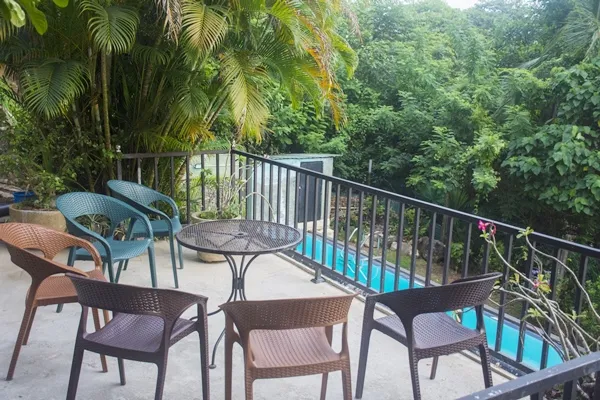
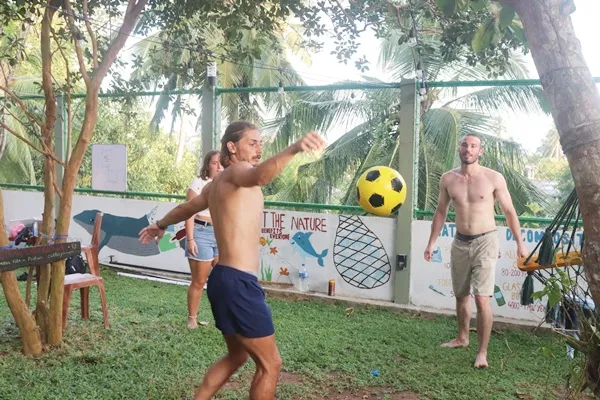
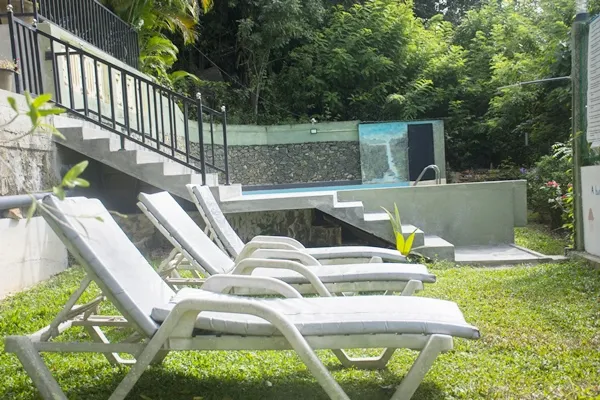
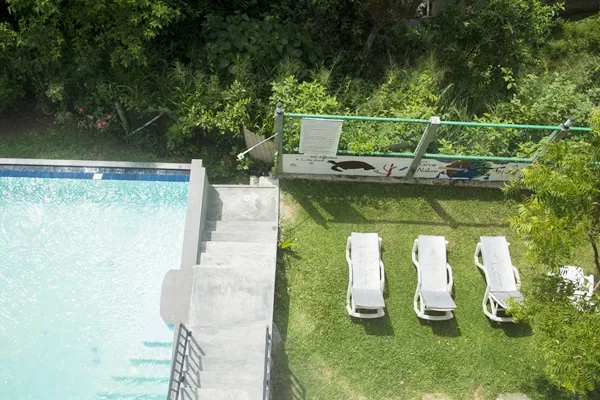
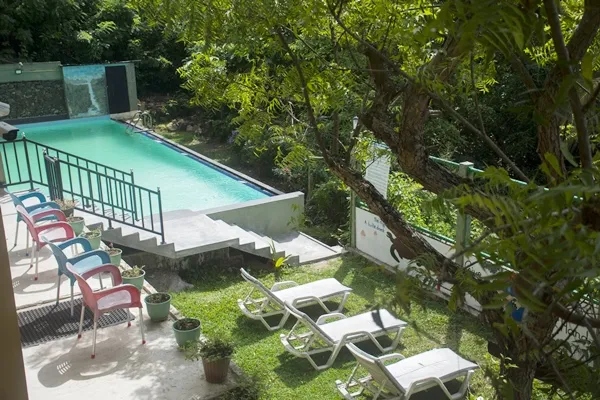
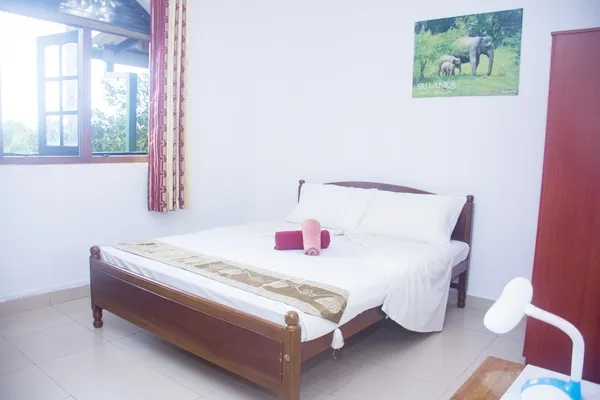




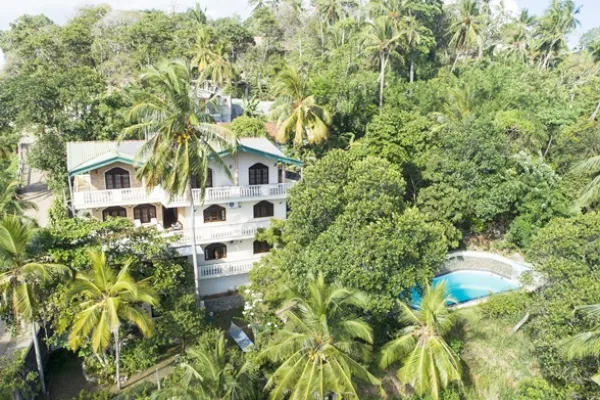

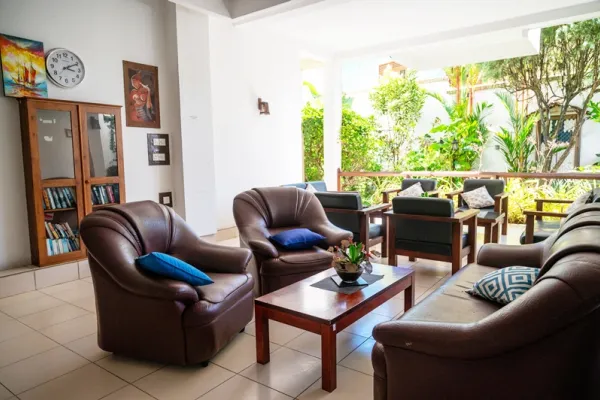
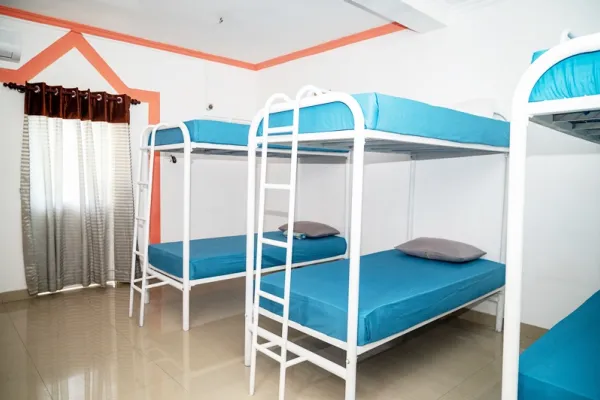
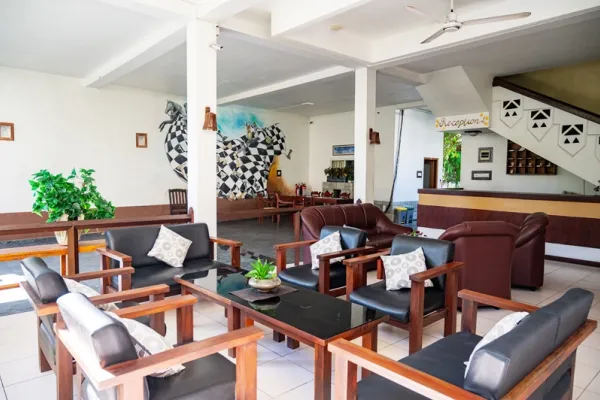
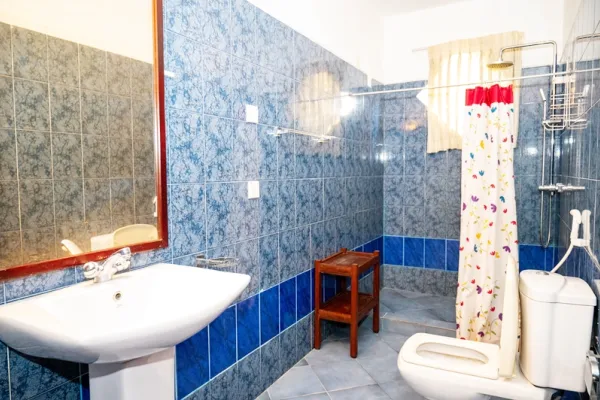
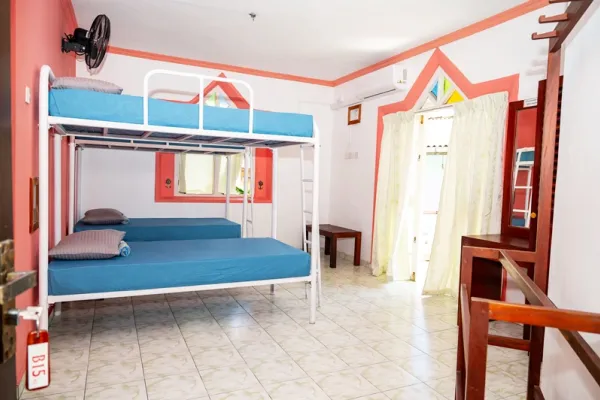
Dates
Dates
January
18
25
February
01
08
15
22
March
01
08
15
22
29
April
19
26
May
03
10
17
24
31
June
07
14
21
28
July
05
12
19
26
August
02
09
16
23
30
September
06
13
20
27
October
04
11
18
25
November
01
January
17
24
31
February
07
14
21
28
March
07
14
21
28
April
04
11
18
25
May
02
09
16
23
30
June
06
13
20
27
July
04
11
18
25
August
01
08
15
22
29
September
05
12
19
26
October
03
10
17
24
31
Available
Filling Fast
Booked Out
Costs
| Duration |
Program Fee
|
Choose your currency
|
|---|---|---|
| 2 Weeks | $835 | |
| 3 Weeks | $995 | |
| 4 Weeks | $1155 | |
| 5 Weeks | $1315 | |
| 6 Weeks | $1475 | |
| 7 Weeks | $1635 | |
| 8 Weeks | $1795 | |
| Extra Week | $250 |
Please Note: An application fee of is charged over and above the program fee as an application payment. A 5% international banking fee is charged for credit card payments of program fee in USD/AUD.
What are you Paying For?
- 24 hrs Assistance and support from Staff
- Comprehensive Pre- Departure Information
- Dedicated volunteer housing with WiFi (shared rooms)
- Shared airport transfer on arrival at designated time windows in the morning or afternoon
- Orientation and training on arrival
- Breakfast, lunch and dinner all days
- Guaranteed project placement
- Local transportation to projects in private AC van or tuk tuk
- Experienced bilingual operations team on the ground
- Dedicated staff support from 6 am to 8 pm every day
- 24/7 local emergency support
- Weekly yoga class on rooftop terrace
- Weekly movie nights on large screen projector
- Monthly bike tour around paddy fields and local villages
- Monthly special BBQ dinner
- Travel & Medical Insurance(Available at an extra cost)
- Certificate of Participation(On Request)
What's NOT Included?
- Visa Fee
- International Airfare
- Return Airport Transfers from Galle to Colombo Airport (available at extra charges)
- Vaccinations
- Any personal expenses
- Additional Local Excursions and Trips
- Private Room Upgrade charges
- Charges for additional nights at accommodation
FAQ's
Health and Safety
-
Do I need to buy a health insurance?
-
Yes, for all volunteers it is mandatory to have a travel medical insurance. To provide the best option to our participants, we offer comprehensive insurance coverage in collaboration with a leading insurance provider.
-
Are there any other things that I need to be careful about?
-
Considering the fact that Sri Lanka is a tropical country, the weather is mostly hot and humid. For people traveling from European and North American countries, it might seem to extremely hot during the days and sultry at night. We would advise you to consume a lot of water and protect yourself from the sun in whichever way possible. Carry an umbrella.
You can consult your doctor once, before traveling to Sri Lanka. -
How safe is Sri Lanka in general ?
-
Sri Lanka is one of the popular tropical destination in Asia and attracts travelers from all around the world. The locals are friendly and helpful as well, however, it is recommended to consult your in-country coordinators before you step out alone or go to any other locations in Sri Lanka. Also, it is recommended to be with your group whenever you venture out or stay out late in the night. It is strongly recommended to follow the safety rules and regulations provided by the in-country coordinator.
-
What immunizations/vaccinations will I need?
-
We recommend you to consult your physician or travel doctor before traveling to Sri Lanka. However, we recommend you take general vaccinations such as:
Hepatitis A and B
Typhoid
Application and Program Details
-
Can I volunteer as part of a group?
-
We encourage our participants to volunteer in a group. We take special care in providing you a placement and also customize your itinerary to make sure you get exactly what you are looking for. Also, we can design special group programs for groups of 5 or more. Our programs are designed to be safe, affordable and offer a great group volunteering experience to the volunteers.
In our experience of more than 12+ years, we have enabled and facilitated volunteer program placements for college groups, university groups, high school groups, group of families, group of couples as well as groups of colleagues. -
When should I apply for the volunteer programs in Sri Lanka?
-
As we have limited spots available in our programs and we serve on first come first basis, it is recommended that potential volunteers book their programs well in advance to get confirmed placements. You can book your slot by filling the application form online and pay the application fee. You can pay your program fee later and also, in installments. However, the complete payment should be made 45 days prior to the starting of the program. If you are volunteering in a group, you can also fill a group application form.
-
Does VolSol provides with a reference or a certificate after program completion?
-
Yes, we will provide you with the Certificate after successful completion of your program. The certificate is provided on request.
-
For how many hours will I volunteer every day?
-
Volunteers usually work for 5 to 6 hours a day depending on their program. However, volunteers need to be flexible, open minded and understand that work requirements can alter at times.
-
How long will it take to process my application? Will my application be accepted?
-
After you complete your application, your personalized ‘My Account’ will be activated.You will need to upload your CV/Resume along with your photo in the same. Our backend team and the placement site takes around 10-12 days to review your application. After we review your CV and documents, your booking is confirmed and booking confirmation is updated in your ‘My Account’. Some projects need a mandatory criminal background check and the same is mentioned in the project info of your program. Approval of your application depends on your qualification and eligibility criteria for each project.
-
When do I need to arrive in Sri Lanka for my program? What will happen once I arrive in the country ?
-
All volunteers need to arrive at Bandaranaike International Airport (CMB) in Colombo, Sri Lanka, on the starting date of their project. Volunteers are picked from the airport by the local coordinator or representative and are transferred to their accommodations. Accommodation will be provided in the volunteer house located near your placements.
A short orientation is given after arrival about the city and placements. The volunteers are also taken for a short tour of Colombo before they start with their program. However, the tour depends on the arrival time of your flight. -
Are there any necessary requirements to participate in the Sri Lankan volunteer programs?
-
Below are the necessary requirements to participate in the Sri Lankan volunteer projects:
The minimum age requirement for the programs in Sri Lanka is 17 years.
Volunteers participating in the Medical Program should be at least 18-year-old.
Volunteers need to have an open mind and flexible attitude for working in a new and different environment. They should bring energy and enthusiasm to make a difference.
The participant must be in good health. -
Does VolSol provides discount if I choose more than one program or if I am a returning volunteer?
-
If you are planning to come for multiple programs in your trip, you will have to pay the application fees just once. Your application fee is valid for a year's time ( from the date of application). You will not have to pay the application fees again if you come within the mentioned time frame.
For our returning volunteers, $50 discount is provided for the application fee for their next VolSol program.
Flights and Visa
-
Will Volunteering Solutions help with Visa?
-
Volunteers traveling to Sri Lanka need to obtain an Electronic Travel Authorization (ETA) prior to their arrival or on their arrival in Sri Lanka. You can then obtain a Visa on Arrival in Sri Lanka for 30 days.
Volunteers can apply for ETA online and the approval of the same will be communicated via email.
Volunteers can be provided with the supporting documents if needed. More information will be provided once you enroll for the program. -
What are the recommended airlines to fly to Sri Lanka ?
-
The Bandaranaike International Airport (CMB) in Colombo is well connected with all major airports across the globe and flights are easily available. The recommended airlines are:
Srilankan Airlines
Air India
Mihin Lanka
Spicejet
Emirates
There are frequent in-country flights from Colombo to Galle and Kegalle as well.
Accommodation and Living
-
Which all places can I explore during my trip?
-
Places like Sinharaja Forest Reserve, Rumassala Mountain, and Galle fort are major attractions in Galle, and Kegalle is a city of ancient architecture and natural beauty. Volunteers are free to plan quick getaways and explore Sri Lanka during the weekends.You can also relax at the beachside and enjoy the taste of the delicious seafood.
-
How do I get to the accommodation and the program location?
-
Your coordinator will meet you at the airport and will take you to your accommodation and introduce you to our team and other volunteers. You will then be provided with the orientation covering areas like culture, customs, safety, locations, placement, greetings, local transportation etc.
On the first day of work, the coordinator will guide you to your project site. -
Can I know more about accommodation and food arrangements?
-
Volunteers joining the programs in Galle, Sri Lanka, get to stay in the quaint Unawatuna neighborhood, overlooking the famous Unawatuna Beach and the turquoise waters of the Indian Ocean. Participants stay in one of the two volunteer homes located in close proximity to each other. The larger volunteer house has 13 bedrooms with ensuite bathrooms.Most of these rooms have ocean views! There's a private 40-foot outdoor swimming pool surrounded by tropical greenery. The house also has 3 kitchens as well as 3 living/common rooms (one each per floor), a prominent dining area, and a private outdoor garden with seating/lounging areas.
The office is located on the ground floor of the house near the main entrance – this is where the local team operate from every day. The house is located in a peaceful, nature-filled neighborhood adjacent to a small Buddhist temple (nestled away from the main tourist areas). To ensure the safety and security of the participants, there are CCTV cameras installed, and an in-house security guard for night-time surveillance. Hot water and high-speed Wi-Fi are there and you can opt for air-conditioning and laundry facilities at an additional charge.
Other than that, we also provide single/double/family private room upgrades at extra charges. The beach is just about 5 minutes walk from the stay and you can reach the Galle Fort in about 15 minutes.If you have special dietary requirements, please mention the same in your application form.
-
Are there more expenses once I arrive in Sri Lanka ?
-
Your program fee covers your accommodation, airport pick-up, orientation, pre-departure booklet, and 24x7 in country staff support. You will need to cover your personal expenses, such as traveling, telephone, the internet, shopping, sightseeing, return airport drop, weekend tours etc. You should carry around $50 - $60 per week for your basic personal expenses, such as water, local transport, phone etc.
-
Would I have free time during my program ? Can I do sightseeing during my program ?
-
Depending on your project placement, you will get free evenings and weekends to explore in and around the city. You can utilize the evening time to visit local markets and other places around your project location. Make the most of your weekends by exploring Sri Lanka to the fullest.
We encourage our volunteers to travel. We have designed various weekend tours which can be booked under the ‘Add-on Tours’ section in your ‘My Account’. Your in-country coordinator will also help you book and organize the tours once you are in Sri Lanka.
-
Where can I change my money in Sri Lanka ? Are there ATMs in Sri Lankan cities?
-
You can change money at any bank or at the airport by showing your passport. There are ATMs located all around the city (Galle, Kandy, Ambalangoda and Kegalle) as well.
Connect with Past Volunteers
-
How can I connect with past Volunteering Solutions Sri Lankan alumni as well as other former and current volunteers ?
-
We encourage volunteers to connect with former Volunteering Solutions participants and also other program participants joining our projects. You are recommended to join the Volunteering">https://www.facebook.com/VolunteeringSolutions/">Volunteering Solutions Facebook Page or Facebook">https://www.facebook.com/groups/volunteeringsolutions/">Facebook Group to connect with other participants and our team.
To read alumni interviews from past participants, visit the Meet">https://www.volunteeringsolutions.com/meet-a-volunteer">Meet a Volunteer section on our website


























